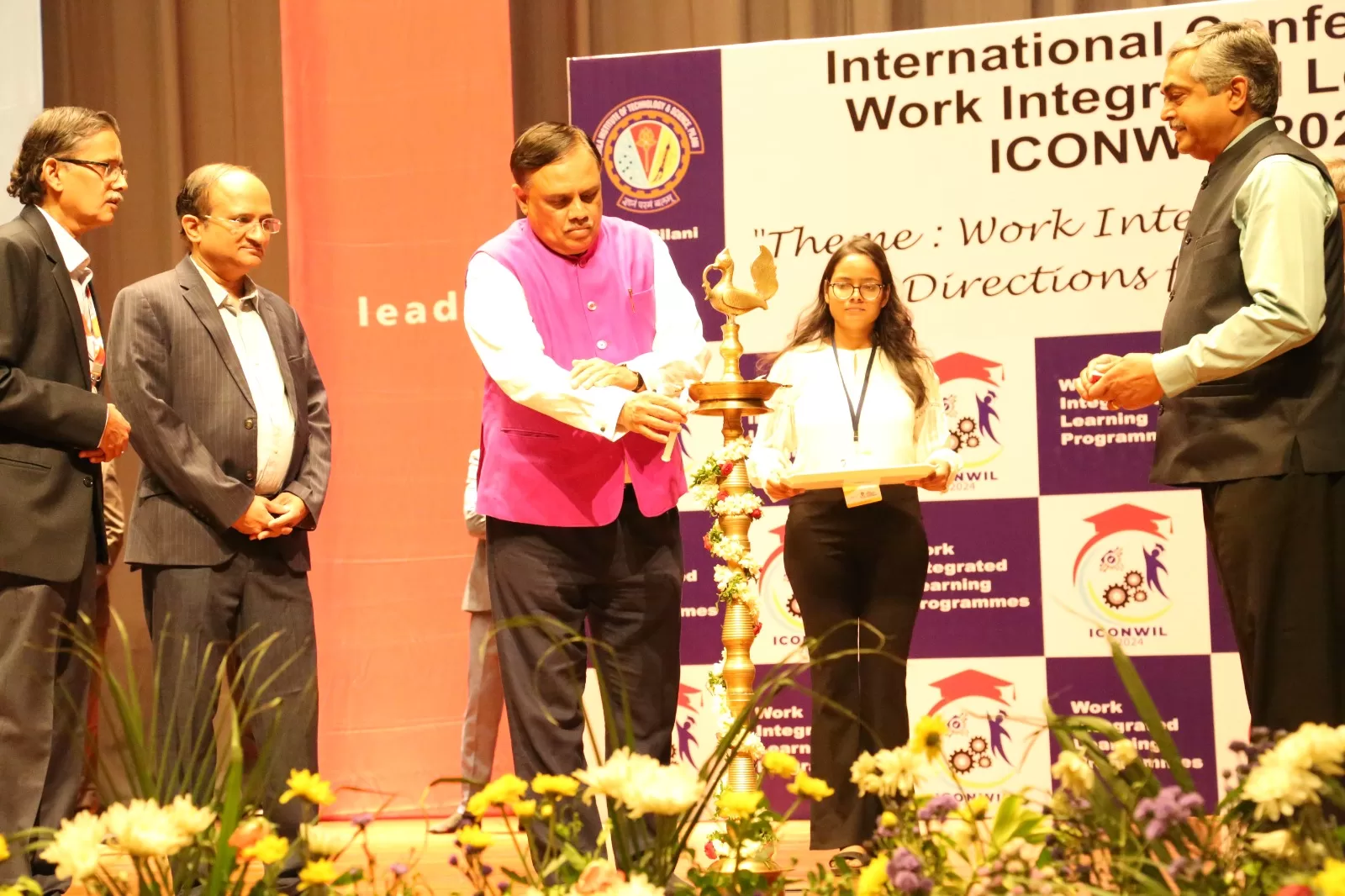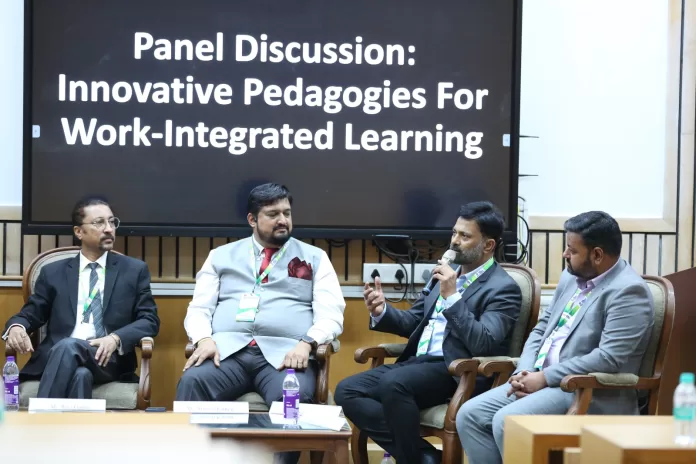The International Conference on Work Integrated Learning (ICONWIL-2024) that was recently hosted by Birla Institute of Technology & Science – BITS Pilani Work Integrated Learning Programmes (WILP) division at its Hyderabad campus, witnessed the convergence of diverse perspectives, innovative ideas, and deliberation of some of the leading practices in the field of Work Integrated Learning (WIL).
The conference brought together scholars, practitioners, and policymakers from across the globe who are actively engaged in WIL to exchange research findings, innovative ideas, and share their experiences, besides facilitating healthy discussions around solutions to practical challenges encountered in the field.


Prof. (Dr.) T G Sitharam, the Chairman, All India Council of Technical Education (AICTE), Government of India, the Chief Guest for the opening ceremony of the conference, congratulated BITS Pilani WILP for hosting a unique conference at such a scale and emphasised the importance of skill development and higher education, especially among the youth in today’s world.
Keynote speeches, panel discussions, and a hands-on workshop set the tone
Prof. Daniel Bernstein, Professor-Emeritus, University of Kansas, was the first keynote speaker at the conference and he delivered a highly impactful talk on “harnessing available resources to maximize learning.”
Prof. Nelson Lacey, Professor-Emeritus, University of Massachusetts, delivered an insightful keynote speech on “experiences with development of online degree program.” And so did Prof. Manu Kapur, Professor, ETH Zurich, on “Productive Failure in the context of Work Integrated Learning.”
The keynote speeches on: “Role of Work Integrated Learning in Innovative Manufacturing” by Dr. Jaiteerth R Joshi, Scientist & Program Director, DRDL Hyderabad and “Role of Metacognition in Teaching Learning process” by Dr. Edamana Prasad, Professor, IIT-Madras were also well received by the audiences.
The panel discussions on “Key ingredients and approaches for designing industry-relevant curriculum” and “Innovative pedagogies for work integrated learning” engaged the participants effectively.
The hands-on workshop on leveraging Generative AI in teaching and learning (with specific focus on practical use cases in work integrated learning) facilitated by Mr. Keshava Rangarajan, co-founder and Chief Innovation Officer, Spanda AI, USA, provided key takeaways for the participants.
Wide range of case studies, research papers, and practice-oriented papers
Several research papers and practice-oriented papers were presented by leading scholars and practitioners in five different tracks;
- Track 1: Perspectives on future directions for work integrated learning;
- Track 2: Pedagogical practices;
- Track 3: Assessment models;
- Track 4: Innovation and learning technologies;
- Track 5: Industry-academia collaboration.
Besides the presentation and deliberation of some insightful case studies, a student competition, “EduForge,” focusing on tech-powered solutions for “work integrated learning” was also held as part of the conference.
All the information about various awards that the practitioners were bestowed with for their papers and relevant work at the conference can be accessed using the link: https://iconwil.bits-pilani-wilp.ac.in/best-paper-awards.
Reflecting on the proceedings of the conference, Prof. G. Sundar, Director, Off-Campus Programmes & Industry Engagement, BITS Pilani, said, “Through engaging keynote presentations, panel discussions, and interactive workshops, ICONWIL-2024 explored the transformative potential of WIL in shaping the future of education and workforce development.
The conference facilitated dialogue, knowledge exchange, and networking, as the participants approached it with open-mindedness and a spirit of collaboration.
I wish to express my sincere gratitude to the organizing committee, sponsors, participants, and collaborators for their dedication in making ICONWIL 2024 a success.
We as an institution shall stay committed to advancing knowledge and driving positive change even further, and ensure that the future WIL-related initiatives too contribute to inspiration, learning, and professional growth.”














